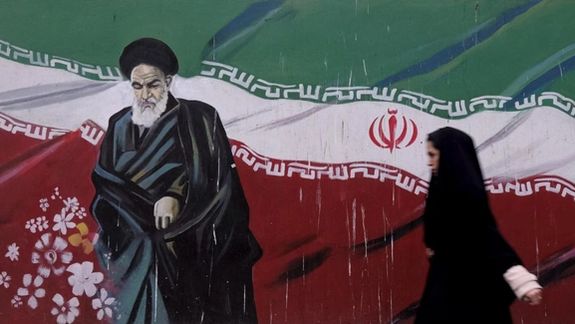Israeli intelligence tells France Iran’s nuclear program not destroyed

Israeli officials told French authorities that Iran’s nuclear program was not entirely destroyed in June’s US-Israeli airstrikes, Le Monde reported on Friday.

Israeli officials told French authorities that Iran’s nuclear program was not entirely destroyed in June’s US-Israeli airstrikes, Le Monde reported on Friday.
The French newspaper, citing diplomatic sources, said the information was shared in early September. Le Monde quoted Israeli intelligence as saying that “while the centrifuge manufacturing sites and most of the uranium enrichment facilities were destroyed, particularly at Fordow and Natanz, Iran still possesses this type of equipment.” Officials added: “Too few to restart the program in the short term, but it’s only a matter of time.”
Le Monde said France values the Israeli assessment because US intelligence has stopped sharing information on Iran’s program with European partners since the June war.
Cairo deal and snapback
Iran has rejected the idea that its program was wiped out. Foreign Minister Abbas Araghchi told Le Monde in July that “the claim that a peaceful nuclear program has been annihilated is a miscalculation” and said the strikes had “reignited” a nuclear arms race.
This week, Araghchi said Iran’s new agreement with the International Atomic Energy Agency, signed in Cairo, does not currently allow inspectors into nuclear sites. He said the deal is consistent with a law passed after the June strikes that suspended cooperation pending approval by the Supreme National Security Council. He added that its continuation depends on Western powers not restoring UN sanctions under the “snapback” mechanism.
Britain, France and Germany triggered snapback in late August, which could restore sanctions at the end of September. They said they would pause the process only if Iran restored IAEA inspections, accounted for its highly enriched uranium stockpile, and engaged in nuclear talks with the United States.
Western pressure
The United States and European Union pressed Tehran to act quickly. Acting US envoy Howard Solomon told the IAEA board that Iran had “ceased implementing its most basic obligations.” The EU said safeguards access is “non-negotiable,” while France, Germany and Britain said they were “alarmed” by Iran’s uranium stockpile.